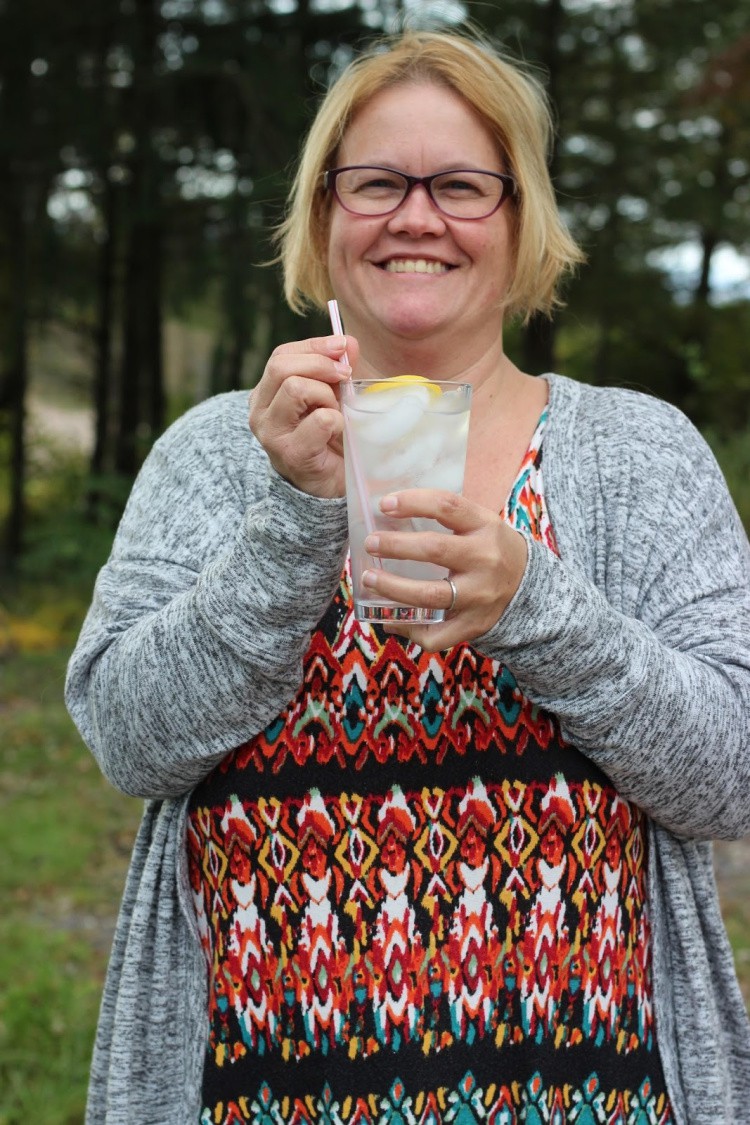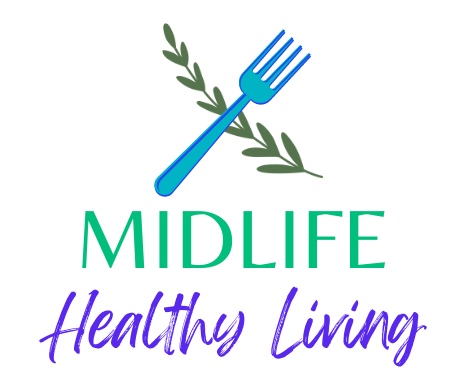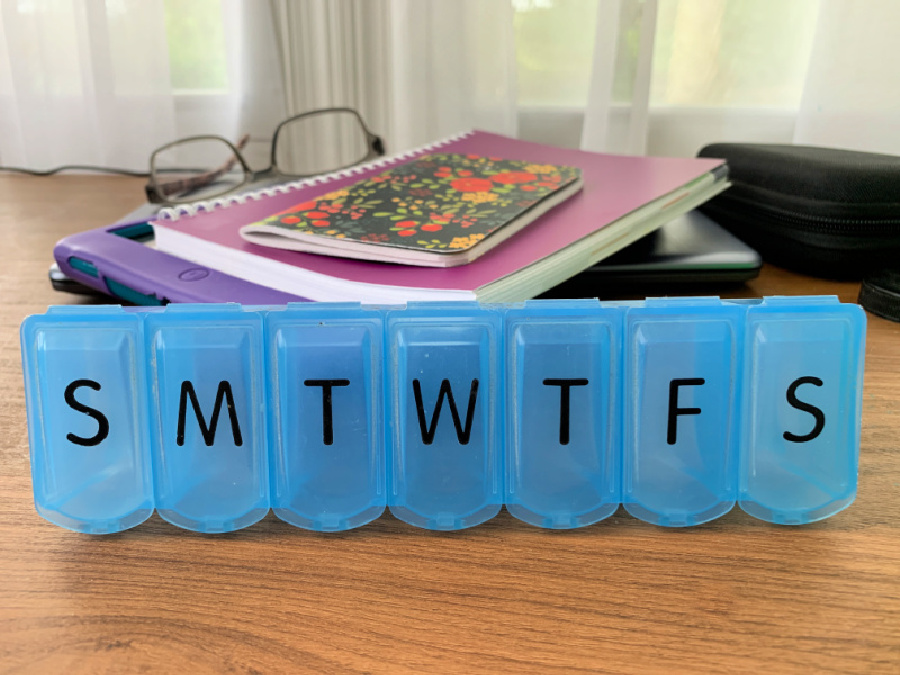Why Women Over 50 Should Prioritize Their Bone Health

Not a TYMLOS® (abaloparatide) injection patient
This post was sponsored by Radius Health, Inc., and does not constitute medical advice. My personal story and opinions are my own. I am not a medical professional and am not qualified to give medical advice. Please talk with your healthcare provider about your individual medical situation.
Are you a woman over 50? If you are, did you know that you should be paying attention to your bone health?
Raising awareness about silent diseases like osteoporosis is so important, and that’s why I’m teaming up with Radius Health to encourage women with postmenopausal osteoporosis to talk with their healthcare provider about what treatment option may be best for them.
With age, comes lots of changes to our bodies, health and families. Kids grow up, family members pass away and our lives will change forever. I have always joked that getting old wasn’t fun, but the way my 2018 went, I think I may be starting to believe it.
I recently celebrated the big 50. It was a “surprise” party with all my immediate family in the Smoky Mountains of Tennessee. Did you see the word surprise in quotes? Let me explain. It was supposed to be a surprise, but I am not a fan of surprises. I think it’s the oldest child syndrome. I have a tendency of always wanting to be in control or needing to be the one to “run the show.”
I knew there was a celebration coming, but I didn’t know all the details. Luckily, my mom and sister both caved in to my nagging and revealed the location just a few weeks before the celebration. I almost canceled the whole trip and ruined the party. I was being selfish and not thinking about all the time my family and loved ones put in to planning something to celebrate me. Thankfully, I got over myself, attended and had a great time. Little did I know this was the last birthday I would ever get to spend with my mom. She passed away in November of 2018. You never know what life will bring you, so enjoy the surprises and ease up on the control anytime you can. Embrace the celebrations!
With age comes these fun celebratory milestones, but it also gives all of us more reasons to start focusing on our health needs, including our bone health. We need to be talking to our friends and family members to start conversations around this. Have you ever had a fall or scare where you thought you may have broken a bone? Approximately one in two women in the U.S. over the age of 50 will have a fragility fracture as a result of a fall from standing height or lower sometime during their remaining lifetime.
50 is an important number when it comes to bone health. Fractures of the hip, wrist, leg, upper arm/shoulder and other areas represent 73% of fractures in women over 50. Do you see the pattern here?
Another milestone we all face as women is menopause. If you are a postmenopausal woman, including those of us in our 50’s and 60’s, it’s important to stay alert. Even if we are experiencing seemingly insignificant fragility fractures, that could be a sign of postmenopausal osteoporosis.
Postmenopausal osteoporosis is a tricky disease. More often than not, there are no signs or symptoms present until a fracture occurs. Even when a fracture occurs many women still go undiagnosed and untreated.
Over 8 million women in the US over age 50 are estimated to have osteoporosis. That could be you, your sisters, mothers, aunts or friends. This is why we need to talk to each other about our bone health needs.
One treatment option available for women with postmenopausal osteoporosis at high risk for fracture is TYMLOS® (abaloparatide) injection. Approved by the US Food and Drug Administration (FDA) in April 2017, TYMLOS may decrease the chance of having a fracture of the spine and other bones in postmenopausal women with thinning and weakening bones (osteoporosis). Women with postmenopausal osteoporosis should talk with their healthcare provider about what treatment option may be best for them.
Many people think postmenopausal osteoporosis is just a normal age-related occurrence that is unavoidable. That may not be true. I really can’t stress enough why it’s so important to visit the doctor on a regular basis and talk with your healthcare providers about your risks and treatment options no matter what your age.
I am poised and ready to enjoy my fifties. Staying active and having fun are always at the top of my list! Let’s rally together to make sure all women know more about their bone health needs and postmenopausal osteoporosis.
Please see Important Safety Information below and full Prescribing Information, including Boxed Warning, as well as the TYMLOS Medication Guide for risk information.
INDICATIONS AND IMPORTANT SAFETY INFORMATION
What is the most important information I should know about TYMLOS?
TYMLOS may cause serious side effects including:
- Possible bone cancer (osteosarcoma). During animal drug testing, TYMLOS caused some rats to develop a bone cancer called osteosarcoma. It is not known if people who take TYMLOS will have a higher chance of getting osteosarcoma.
- Tell your healthcare provider right away if you have pain in your bones, pain in any areas of your body that does not go away, or any new or unusual lumps or swelling under your skin that is tender to touch.
Before you take TYMLOS, tell your healthcare provider about all of your medical conditions, including if you:
- have Paget’s disease of the bone or other bone disease.
- have or have had cancer in your bones.
- have or have had radiation therapy involving your bones.
- have or have had too much calcium in your blood.
- have or have had too much of an enzyme called alkaline phosphatase in your blood.
- have or have had an increase in your parathyroid hormone (hyperparathyroidism).
- will have trouble injecting yourself with the TYMLOS pen and do not have someone who can help you.
- are pregnant or plan to become pregnant. TYMLOS is not for pregnant women.
- are breastfeeding or plan to breastfeed. It is not known if TYMLOS passes into your breast milk. You and your healthcare provider should decide if you will take TYMLOS or breastfeed. You should not do both.
Tell your healthcare provider about all the medicines you take, including prescription and over-the-counter medicines, vitamins, and herbal supplements.
What are the possible side effects of TYMLOS?
TYMLOS can cause serious side effects including:
- Decrease in blood pressure when you change positions. Some people may feel dizzy, have a faster heartbeat, or feel lightheaded soon after the TYMLOS injection is given. These symptoms generally go away within a few hours. Take your injections of TYMLOS in a place where you can sit or lie down right away if you get these symptoms. If your symptoms get worse or do not go away, stop taking TYMLOS and call your healthcare provider.
- Increased blood calcium (hypercalcemia). TYMLOS can cause some people to have a higher blood calcium level than normal. Your healthcare provider may check your blood calcium before you start and during your treatment with TYMLOS. Tell your healthcare provider if you have nausea, vomiting, constipation, low energy, or muscle weakness. These may be signs there is too much calcium in your blood.
- Increased urine calcium (hypercalciuria). TYMLOS can cause some people to have higher levels of calcium in their urine than normal. Increased calcium may also cause you to develop kidney stones (urolithiasis) in your kidneys, bladder or urinary tract. Tell your healthcare provider right away if you get any symptoms of kidney stones which may include pain in your lower back or lower stomach area, pain when you urinate, or blood in your urine.
The most common side effects of TYMLOS include:
- dizziness
- nausea
- headache
- fast heartbeat
- feeling very tired (fatigue)
- upper stomach pain
- vertigo
These are not all the possible side effects of TYMLOS. Call your doctor for medical advice about side effects. You may report side effects to FDA at 1-800-FDA-1088.
- If you take more TYMLOS than prescribed you may experience symptoms such as muscle weakness, low energy, headache, nausea, dizziness (especially when getting up after sitting for a while) and a faster heartbeat. Stop taking TYMLOS and call your healthcare provider right away.
What is TYMLOS?
TYMLOS is a prescription medicine used to:
- decrease the chance of having a fracture of the spine and other bones in postmenopausal women with thinning and weakening bones (osteoporosis).
- treat osteoporosis in postmenopausal women who are at high risk for bone fracture.
It is not known if TYMLOS is safe and effective for children 18 years and younger.
It is not recommended that people use TYMLOS for more than 2 years during their lifetime.
TYMLOS should not be used in children and young adults whose bones are still growing.
TYM-US-02367 2/19






